2018 Toyota Camry Hybrid Review

The Toyota Camry Hybrid is my favorite Camry.
This statement is true even when you take the V6 model into account. Although the V6 Camry can smoke a few sporty cars at a stoplight, it just doesn’t seem natural in the same way that very quiet, fuel-efficient Camry does. A hybrid Camry seems to make more sense than a Camry that’s trying to be sporty, even though Toyota claims that it isn’t doing the boring thing anymore.
The new Camry is filled with all sorts of amazing improvements over the last one and although it did lose AutoGuide.com’s comparisons against the Honda Accord and the Hyundai Sonata, it’s still ridiculously good, especially if you’re loyal to Toyota. The hybrid model just makes everything the Camry does better.
Fuel Economy
The Toyota Camry Hybrid’s excellent fuel economy is hard to argue with. The LE trim sedan is officially rated at 51 mpg in the city, 53 on the highway, and 52 combined (4.9/4.8/4.9 L/100 km), which is better than its main rivals. The new Honda Accord Hybrid is rated at 47 mpg ( 5 L/100 km) across the board, and the Hyundai Sonata Hybrid gets 39/45/42 mpg (5.9/5.3/5.6 L/100 km).
FAST FACTS
| Engine: | 2.5L 4-cyl + electric motor |
| Output: | 176 hp, 163 lb-ft + 208 hp, 149 lb-ft |
| Transmission: | CVT |
| US Fuel Economy (MPG): | 51 city, 53 hwy, 52 combined |
| CAN Fuel Economy (L/100 km): | 4.9 city, 4.8 hwy, 4.9 combined |
| US Price: | Starts at $28,695/$37,255 as tested |
| CAN Price: | Starts at $33,235/$42,832 as tested |
| : | (All pricing includes destination) |
I was getting 36 mpg (6.5 L/100 km) in the XLE version without even trying (though I was using Eco Mode a lot, which limits how quickly you can accelerate), and that was during a week with very cold and snowy winter conditions that are not ideal for hybrids. It was quite far off from the XLE’s official fuel economy ratings (44/47/46 mpg), but a more patient and dedicated driver than I could easily squeeze more efficiency from the sedan, especially at a comfortable temperature and with high-efficiency tires on (my tester had winter tires). The LE trim level gets a lithium-ion battery pack, while the SE and XLE get a nickel-metal hydride setup.
There were very tangible cost savings when I filled up the Camry Hybrid after a week of driving versus my daily driver. Those savings add up quickly.
Green Guides
When it comes to getting the most mileage from a tank of gas, I’ll take any help I can get. The Camry will score you based on how efficient your driving is and resets every time you stop, but the system is not that transparent in how it comes up with that score, which means it’s harder to improve on that score. Other hybrids make a game out of greener driving, which makes it easier to be efficient, especially if you’re a competitive person. Other hybrids visualize how green you’re driving in an effective and easy-to-digest way that helps you improve. The Camry doesn’t really have this and would benefit by making it more fun.
The Camry Hybrid does, however, have a useful gauge in the cluster that shows you when you’re being the most efficient — if you’re coasting or accelerating very gently, the needle stays in the green Eco zone, and if you stomp on the pedal, it quickly shoots up into the grey “Power” zone, and if you’re braking, the needle goes into the recharge zone. You learn pretty quickly how to avoid the grey zone. This is a very good indicator of efficiency, but the other systems in the Camry don’t relay much information and end up being quite useless. Not a huge deal, as learning how to drive a hybrid more efficiently is only a quick Google search away.
Driving Dynamics
All the improvements to the Camry’s driving dynamics have also made it into the hybrid version. The same excellent chassis is employed here and it keeps the car much more composed than it used to be in pretty much every scenario: highway driving, city driving, rough roads, curvy roads; the Camry does it all quite gracefully and drama free.
ALSO SEE: 2018 Toyota Camry Review
Like the conventionally gas-powered model, the Camry Hybrid is smooth, quiet and comfortable. The system switches between battery and gas power pretty seamlessly and the only complaint I have about driving dynamics is that the brakes can feel a bit unnatural, which makes it a bit more difficult to drive smoothly. The first bit of brake travel doesn’t really do much and then it bites aggressively almost all of a sudden, probably a result of having regenerative braking.
The Camry Hybrid is powered by a 2.5-liter four-cylinder engine that outputs 176 horsepower and 163 pound-feet of torque. The internal combustion engine is augmented by an electric motor that adds 118 hp and 149 lb-ft, but the hybrid system’s net power output is 208 hp. Power is sent to the front wheels via a CVT. It’s not thrilling to drive, but it definitely doesn’t need to be. In regular mode, the Camry Hybrid gets up to highway speeds and passes decently, but in Eco mode, you have to be very patient, which will net you better fuel economy.
Lacks Attention to Detail
One reason why the gas-powered Camry lost our comparisons against the Sonata and Accord despite being such a strong car is that Toyota seemed to display a lack of attention to detail, which is the same case with the hybrid version.
It’s the little things like having the wireless cellphone charger in a spot where a phone could easily slide away into the footwell if you do an aggressive turn (a better rubberized mat would have fixed the problem), or the fact that even after a week of use, my fingers still couldn’t intuitively locate the trunk release button out back. Little things like how the front collision sensors continue to beep even though the car is stopped completely and there’s no more risk of a crash (this happens while parking, waiting in traffic, etc). Or even the fact that the buttons used to control the infotainment and climate controls on the center console are tiny, oddly shaped, and not labeled in the clearest font, which makes them harder to use while driving.
And one more: not offering Android Auto or Apple CarPlay when the infotainment system is laggy, not terribly user-friendly, and looks dated makes it worse. These are all little complaints that alone aren’t that significant, but add up to create a frustrating experience.
The Verdict: 2018 Toyota Camry Hybrid Review
The hybrid is my favorite member of the Camry family and if you’re considering the regular four-cylinder version, you might as well spring for the hybrid. The efficiency is hard to argue with and it does everything the conventional Camry but does slightly better.
Please subscribe to our YouYube channel!
Discuss this article on our Toyota Forum
LOVE IT
- Smooth, comfortable
- Excellent fuel economy
- Well-rounded
LEAVE IT
- Frustrating infotainment system
- Unnatural-feeling brakes
- Could be more user-friendly

Jodi has been obsessed with cars since she was little and has been an automotive journalist for the past 12 years. She has a Bachelor of Journalism from Ryerson University in Toronto, is a member of the Automobile Journalists Association of Canada (AJAC), and a jury member for the prestigious North American Car/Truck/Utility Vehicle of the Year (NACTOY). Besides hosting videos, and writing news, reviews and features, Jodi is the Editor-in-Chief of AutoGuide.com and takes care of the site's day-to-day operations.
More by Jodi Lai



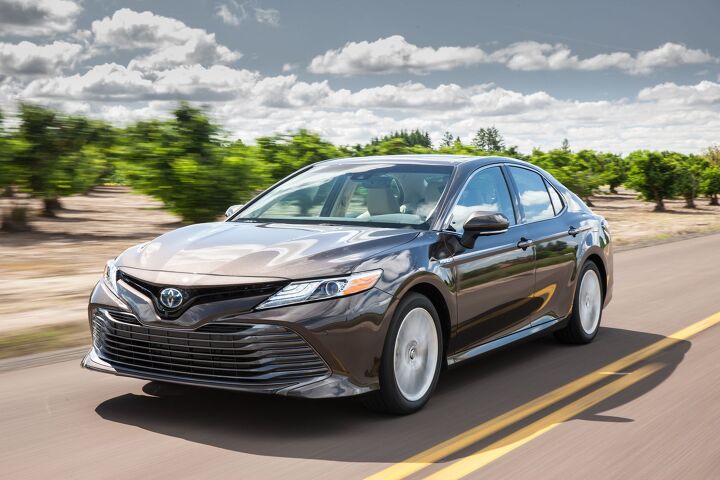





































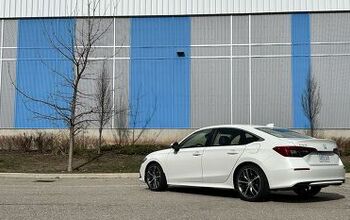

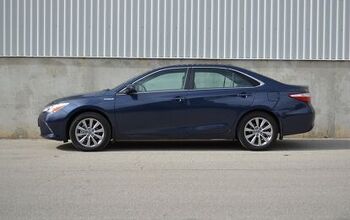
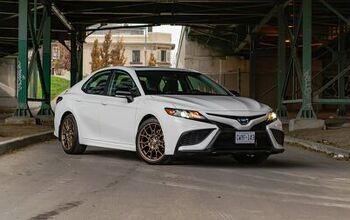
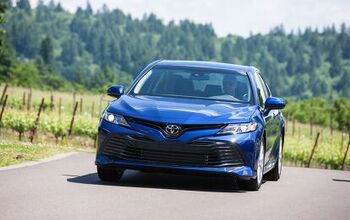

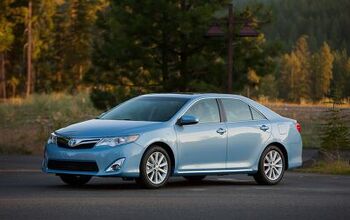
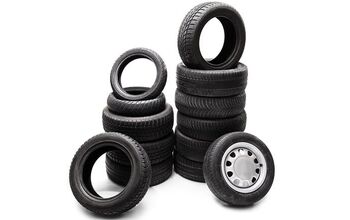
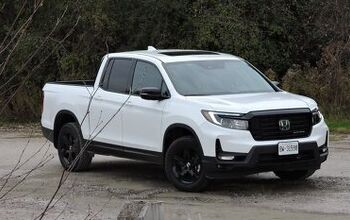

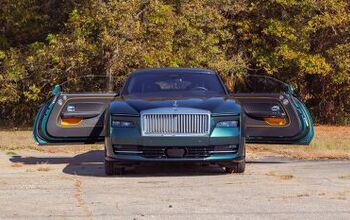
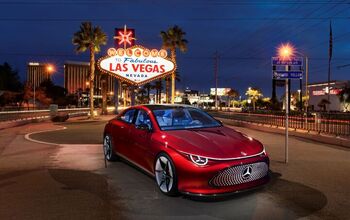
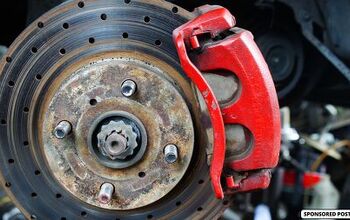
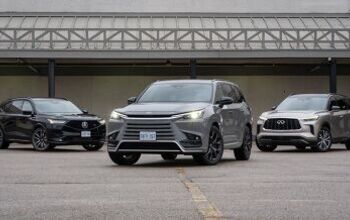
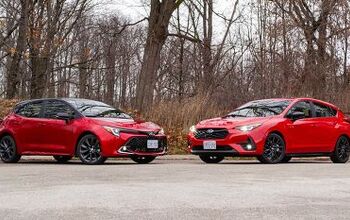
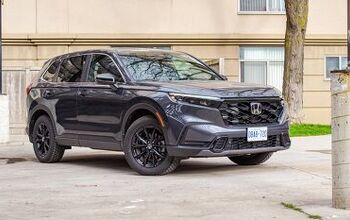
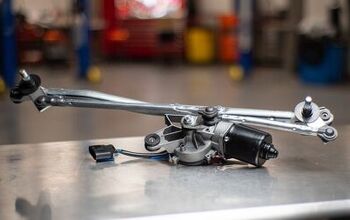
Comments
Join the conversation
I agree when you say Toyota Lacks Attention to Detail - especially evident in their retrograde navigation/infotainment system. It has been widely reported to be slow to load, lacking in features and downright dangerous for a driver to use. Google; Toyota's Entune App Suite is breaking Camrys.
https://uploads.disquscdn.com/images/897e0101054a3b4bef1ef863b711c97aa12e7a562bef9426d5a2050e870e7055.jpg A few additional comments from of an owner of his 3rd TCH (somewhat bias, yes) The fuel economy does improve with use and technique. I now average 4.2l/100km (bad picture) on the summer tires and 4.6l/100km on the winter tires (Michelin Xice3) Went 1050km on my last tank of 44litres of fuel. Very happy about that. I am concerned that people reading this article may think the car is slow. In eco mode, the car gets up to speed quite well, easily spinning its tires if you plant your foot too hard. The eco mode just gives you more range of movement for the gas pedal. Switch to sports mode, and you can be very instantaneous performance with the electric motor boosting the gas. Lots of low end power is available. I also want to comment on the economics. In the case of a Camry LE, you need to get an optional upgrade to get the same options as the Hybrid. When you work out the numbers, it means a little over $1000 premium on an evenly equipped hybrid vs. regular model. You'll get that back in fuel costs within 2-3 years for the average driver. It makes sense to go hybrid for this car. And for previous Toyota Camry Hybrid owners, as the article said, the ride and the trunkspace are far superior to older models. Well worth the upgrade.